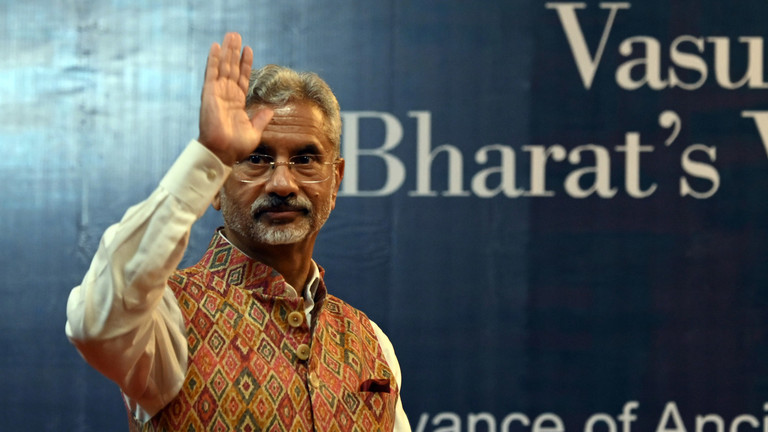
India’s External Affairs Minister Subrahmanyam Jaishankar, who began his second term on Tuesday, said the country will focus on finding solutions to its border disputes with China and Pakistan.
Narendra Modi’s Bharatiya Janata Party (BJP) failed to secure a majority on its own during the country’s recent parliamentary elections, but the prime minister and foreign minister were able to retain their positions retain their positions in the BJP-led coalition government.
Jaishankar stressed that despite this change, India would maintain continuity in its foreign policy. “In any country and especially in a democracy, it is a very big deal for a government to get elected three times in a row. So the world will definitely feel that today there is a lot of political stability in India,” Jaishankar told media.
The top diplomat noted the focus with regard to Beijing will be on finding a solution to border issues, while New Delhi and Islamabad will work together to find a solution to “years-old” cross-border terrorism.
The diplomat also laid out his ministry’s roadmap regarding New Delhi’s bid for a permanent seat in the United Nations Security Council. “The influence of India has been steadily growing, not just in terms of our own perception but also what the other countries think. They feel that India is truly their friend and they have seen that in times of crisis, if there is one country that stands with the Global South, it is India. They have seen that when we put forward the African Union membership during the presidency of G20, the world trusted us and our responsibilities are also increasing, so we also believe that under the leadership of PM Modi, India’s identity in the world will definitely increase,” he said.
On Monday, Jaishankar met with Bangladesh Prime Minister Sheikh Hasina, Sri Lankan President Ranil Wickremesinghe and Maldivian President Mohamed Muizzu to discuss bilateral relations and ways to deepen regional cooperation. The South Asian leaders had been invited by New Delhi to attend Modi’s swearing-in ceremony on Sunday.
While dignitaries from China and Pakistan weren’t invited to the ceremony, both countries released messages on X (formerly Twitter) congratulating Modi on the BJP-led National Democratic Alliance (NDA) winning the elections.
New Delhi aims to position itself as ‘Vishwa Bandhu’ (friend of the whole world), “a country which is in a very turbulent world, in a very divided world, a world of conflicts and tensions,” Jaishankar noted on Tuesday, allegedly referring to the ongoing Ukraine crisis, hostilities in Gaza and tensions in the Middle East.
India hosted the leaders of the G20 group of nations in New Delhi last year, where it compelled the world’s top economic and political powers to reach a consensus on the Delhi Declaration, which, unlike the 2022 Bali Declaration, did not mention Russia in relation to the Ukraine conflict.
New Delhi’s balancing act of maintaining ties with traditional partners like Russia and Iran while actively developing partnerships with Western countries reflects its desire for strategic autonomy, and prioritizes national interests. However, experts note that under the Modi-led government, India’s foreign policy has become more assertive, given its emergence as an economic powerhouse – it currently has the fifth-largest economy, is the third-largest oil importer, and is the biggest arms importer.
RT

